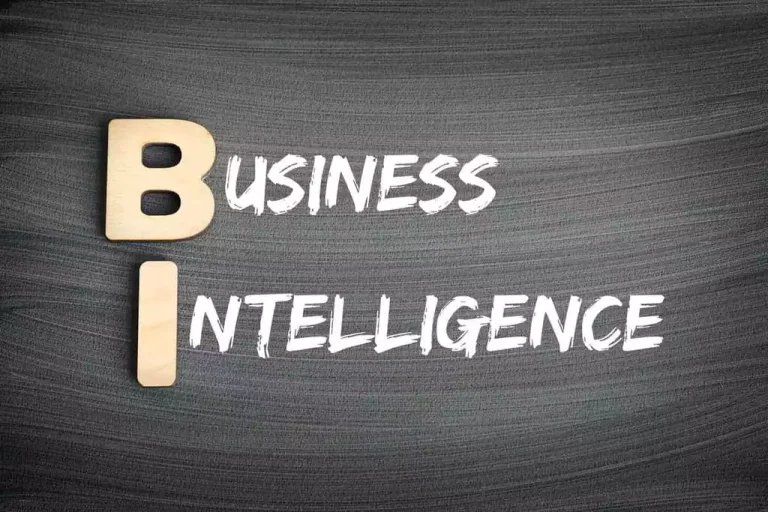For occasion, if alternative information shows rising customer interest in sustainable investing, banks can envisage related Big Data in Trading merchandise that better appeal to altering customer tastes. After massive knowledge was launched to the sector of information science, the means in which financial establishments operate has undergone a whole upheaval. Customer purchases and purchasing patterns are tracked by buyer information administration firms. Data science in finance assists in finding out shopper purchase patterns and offering customers with the companies they like. But, with the web platforms coming into emergence, transactions grew to become extensively on-line.
- Financial evaluation goes one step further and provides specialised analytics for banks, investment corporations and wealth management corporations.
- The advent of technology in the course of of economic reporting has altered how companies handle their funds.
- However, even earlier than the term “big data” emerged, as early as the 1950s, firms had been utilizing fundamental analytics, including numbers in a spreadsheet that was manually analyzed, to find insights and patterns.
- The sooner the accountants be taught to determine these dangers, the better is the prospect of alleviating them.
- Big Data can effectively enhance the ways corporations utilize predictive models within the risk administration discipline.
How Massive Knowledge Works With Structured And Unstructured Data
Data governance and security are also crucial for organizations that use monetary providers, as they make sure that sensitive data remains protected against unauthorized access and misuse. In practical purposes, organizations have demonstrated the viability of using financial knowledge analytics for acquiring insights and making more informed decisions. This enables them to stay one step forward of their opponents while making rapid choices primarily based on correct knowledge – key advantages that financial data analytics provide for improved decision-making. The future of economic data analytics is thrilling as a result of fixed emergence of recent applied sciences and tools. Continuous studying and development are required for personnel to understand advanced datasets so that companies can stay aggressive.
How Data Science Has Modified The Banking Trade
Applying knowledge analytics to big information in accounting helps companies acquire significant insights, predict future possibilities, and automate financial duties. For an accountant to be an enormous data skilled, they need to study technical and analytical abilities to manage statistics and examine large data sets with data mining accounting. The monetary sector is particularly vulnerable to fraudulent actions, and data analytics is a potent software in fraud detection. Machine learning fashions can analyze transaction patterns, detect anomalies, and establish potential situations of fraud in actual time.
Incorporating Alternative Knowledge In Banking Fashions
This is important for managing investment portfolios as a outcome of making accurate predictions can mean making a lot of money or dropping it. Cloud-based options are gaining popularity, as they allow businesses to retailer and entry data from wherever on the earth. Automation options can reduce human labor expenses while improving knowledge processing accuracy and velocity.
Future Developments In Information Engineering

With the growing sophistication of cloud computing, AI, and ML technologies, businesses could now automate their regulatory reporting procedures with better precision and speed. This has allowed companies to reduce expenses whereas concurrently bettering monetary report quality. This method is very beneficial for simultaneously evaluating huge datasets from numerous sources (e.g., inventory market prices). AI & ML algorithms additionally assist in automating monotonous operations associated to reporting creation, similar to preparing tables/charts, and so on., so freeing up resources to give consideration to higher-value actions. Reporting a business’s monetary well being to stakeholders, corresponding to shareholders and regulators, is important.
As you uncover where you acquire customers, you can discover what you’re doing nicely and use that info to optimize other steps. Moreover, they will use AI and predictive analytics to go even deeper into this data. By filtering this data throughout demographics like age, gender, and site, you can personalize recommendations further.

What Makes A Leading Artificial Intelligence
Organizations and not utilizing a comprehensive information technique could have lots of hassle making sense of all that information—and threat falling behind their better-equipped opponents. AI-powered robo-advisors supply personalised investment advice to particular person buyers. They create tailored funding methods, considering an investor’s monetary state of affairs, goals, and risk tolerance. India’s inventory market is thought to be risky, dynamic, and non-linear, suggesting the fairly difficult nature of trading that is turning into wildly well-liked among new generations.
Why Huge Data Matters For Monetary Reporting & Analysis?
Therefore, financial providers firms are increasingly harnessing the potential of massive data to revamp their processes, organisational constructions, and the trade as a whole. Machine studying algorithms powered by huge data are increasingly used in investment strategies. ML algorithms can course of huge datasets and study from market information in a means that goes past human capabilities. Hence, it could allow you to make real-time decisions primarily based on changing market conditions.

Data evaluation and synthetic intelligence have turn out to be crucial parts of contemporary monetary reporting, providing info on consumer behavior and market developments that may inform strategic decisions. As a possible methodology for guaranteeing secure and transparent world transactions, blockchain is being researched. Predictive analytics utilizes statistical algorithms and machine studying strategies to identify future tendencies and outcomes primarily based on historic information.
Big data analytics in accounting allows for the collection and analysis of huge quantities of monetary data from various sources. This permits accountants to gain deeper insights into a company’s monetary efficiency. They can establish tendencies, patterns, and anomalies that might go unnoticed with conventional methods. These insights can inform strategic decisions, helping companies allocate sources more successfully and optimize their financial strategies. Text analytics includes the extraction of insights from unstructured information sources, corresponding to information articles, social media, and financial reports. Sentiment evaluation, a subset of textual content analytics, helps gauge market sentiment and investor perceptions.
It can also be used to study human behaviour, monitor disease outbreaks, and battle crime. Moreover, AI and ML applied sciences are being utilized to simplify difficult regulatory compliance procedures, similar to tax submitting and financial statement auditing. These methods can evaluate giant volumes of unstructured data extra rapidly than people ever may, enabling more correct projections of how markets will reply to specific circumstances or situations. In addition, they assist businesses to identify potential monetary exposures by exposing disparities between reported data that may otherwise go unnoticed owing to human mistakes or oversight. The future of monetary reporting expertise appears extra promising than ever before.
Read more about https://www.xcritical.in/ here.

